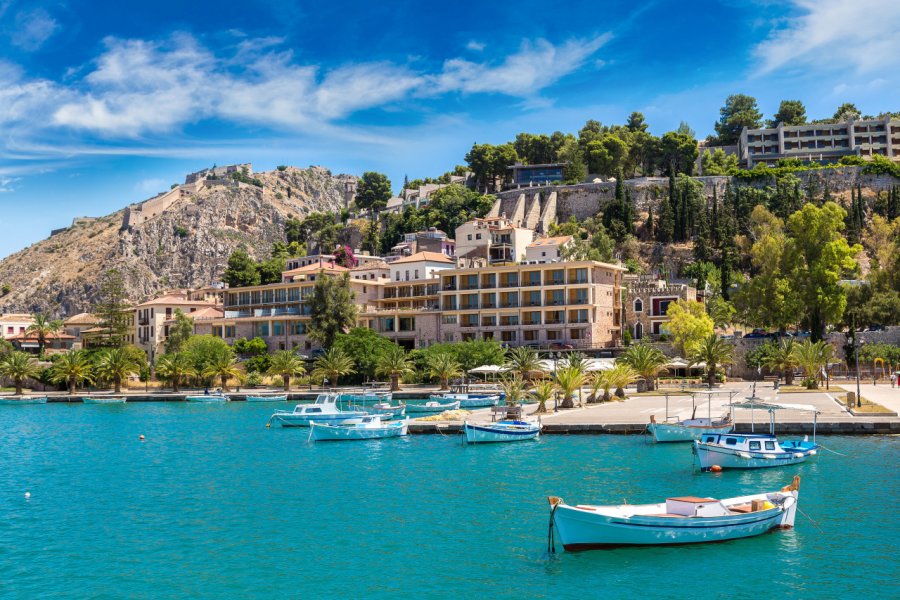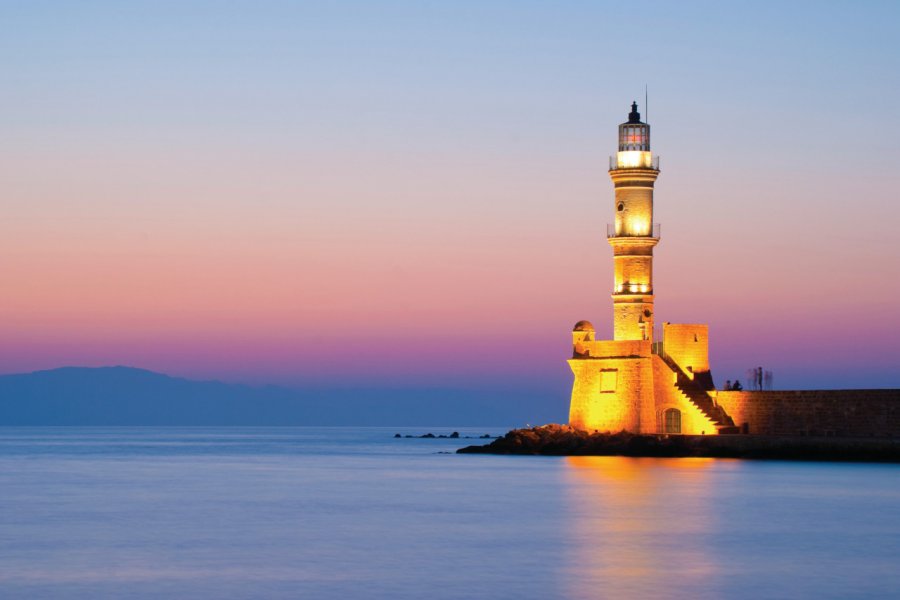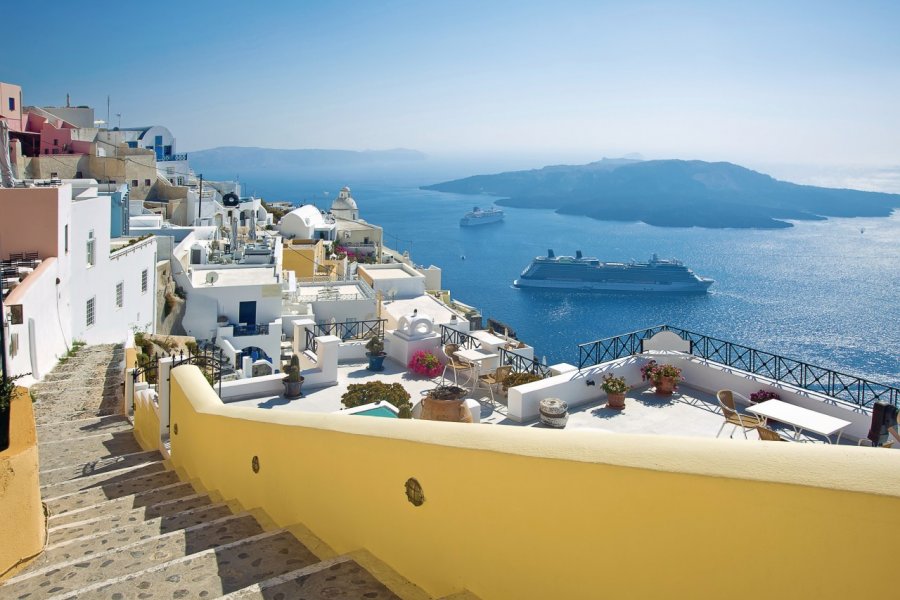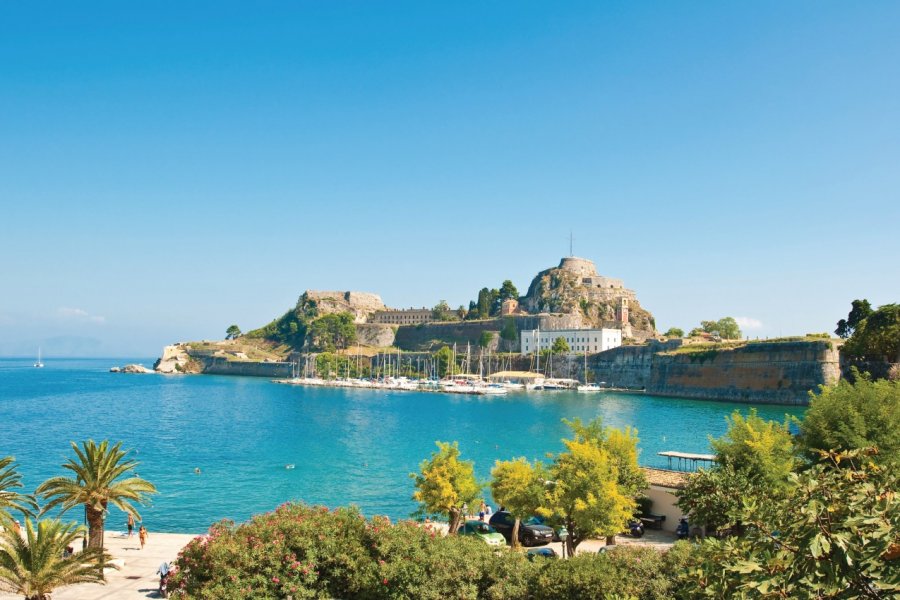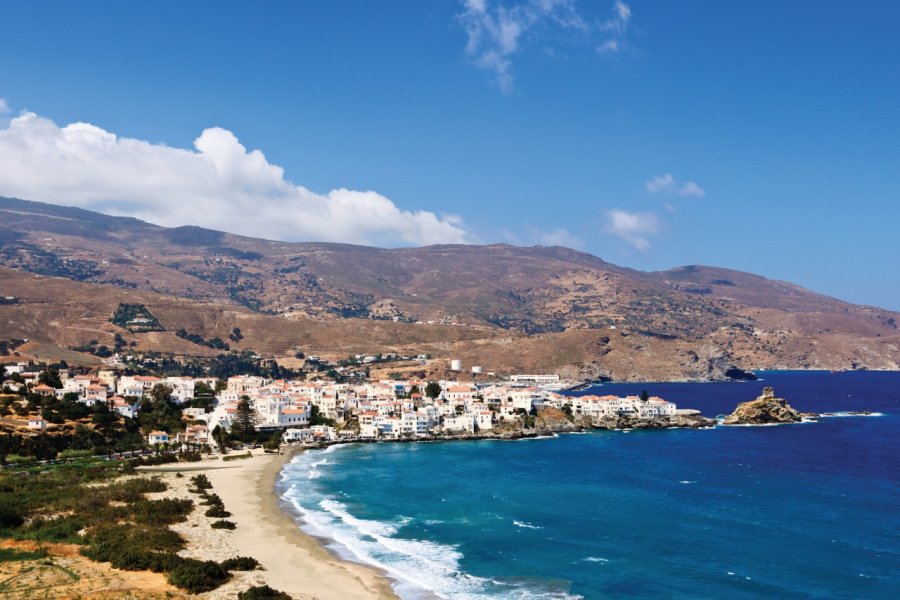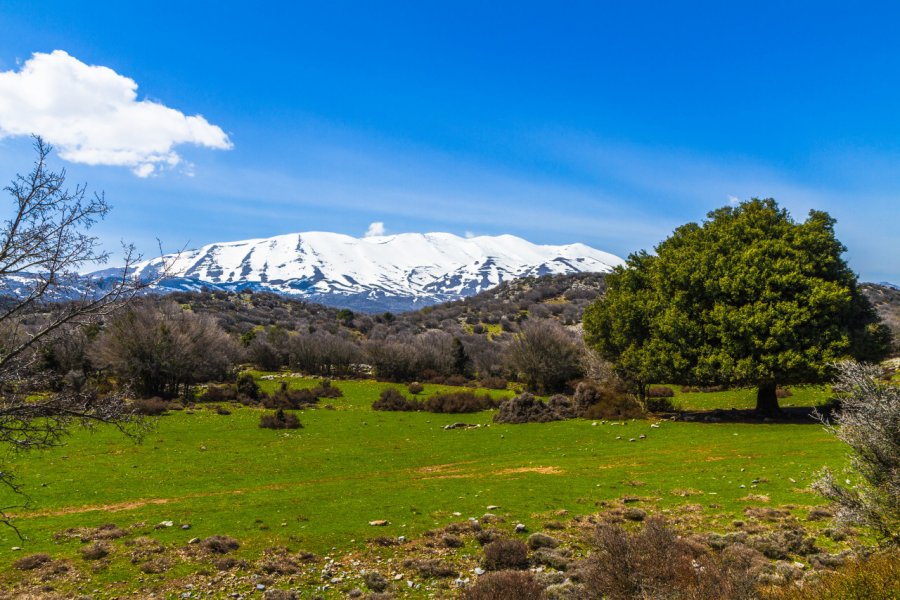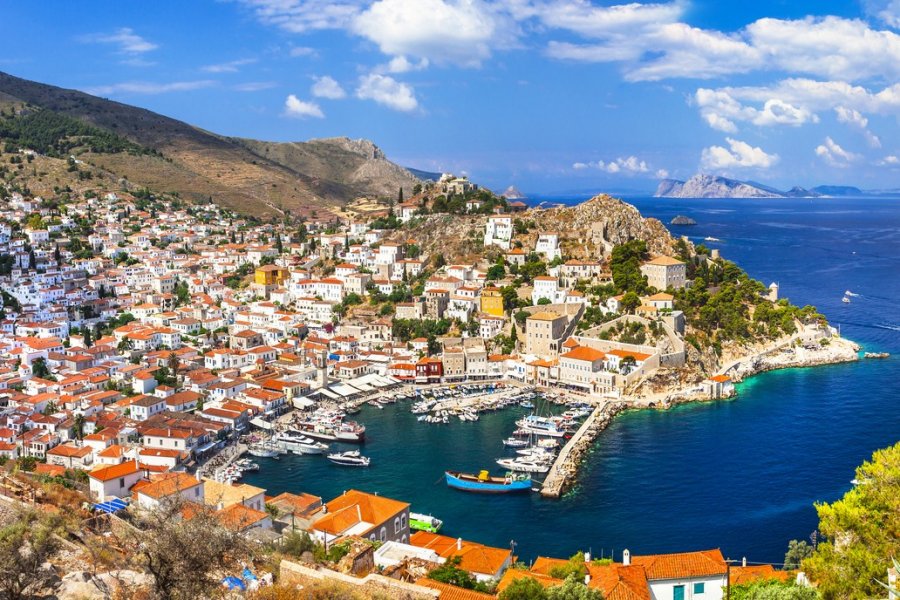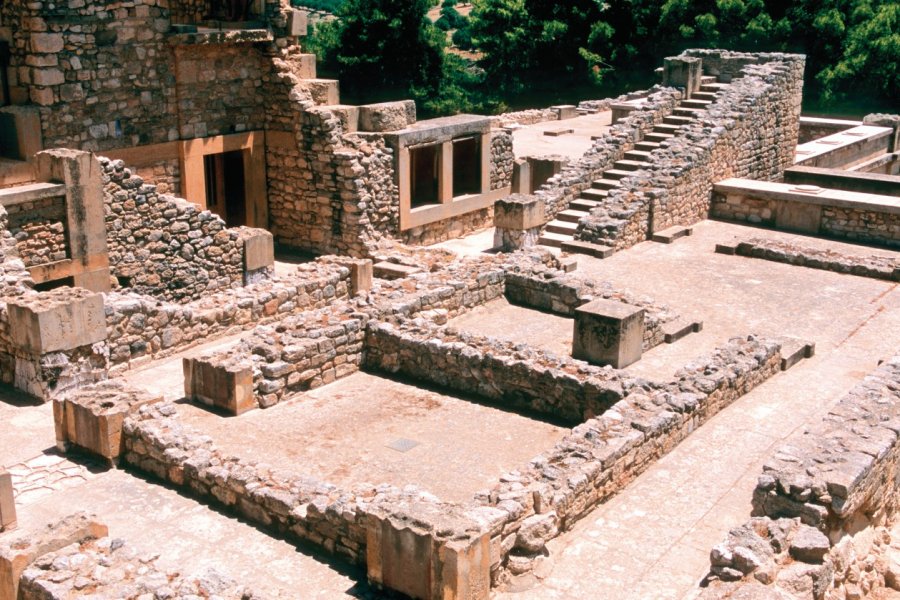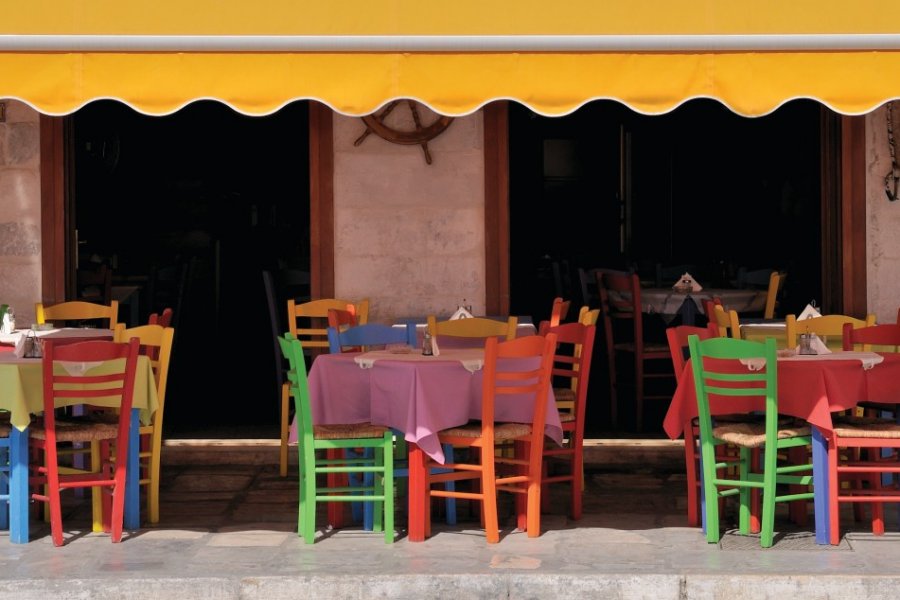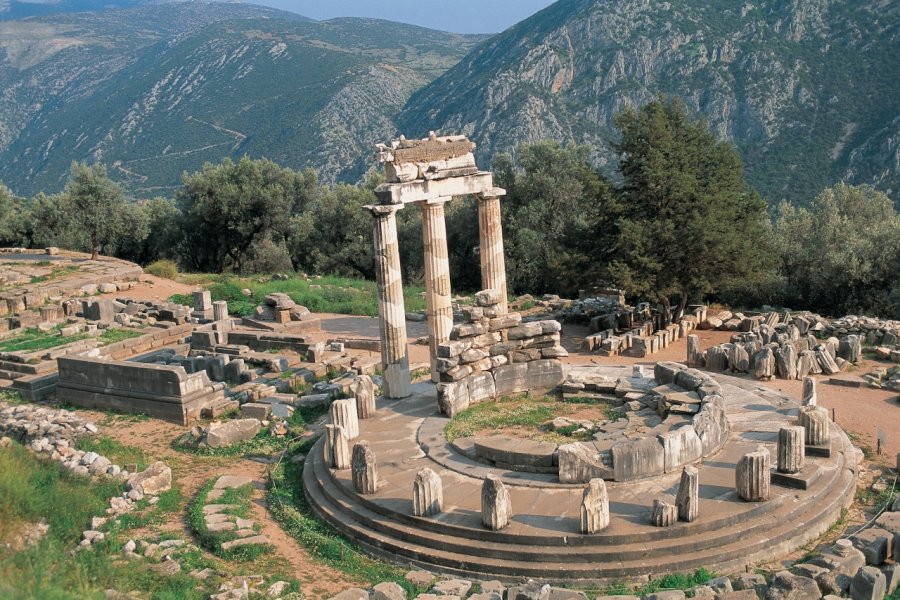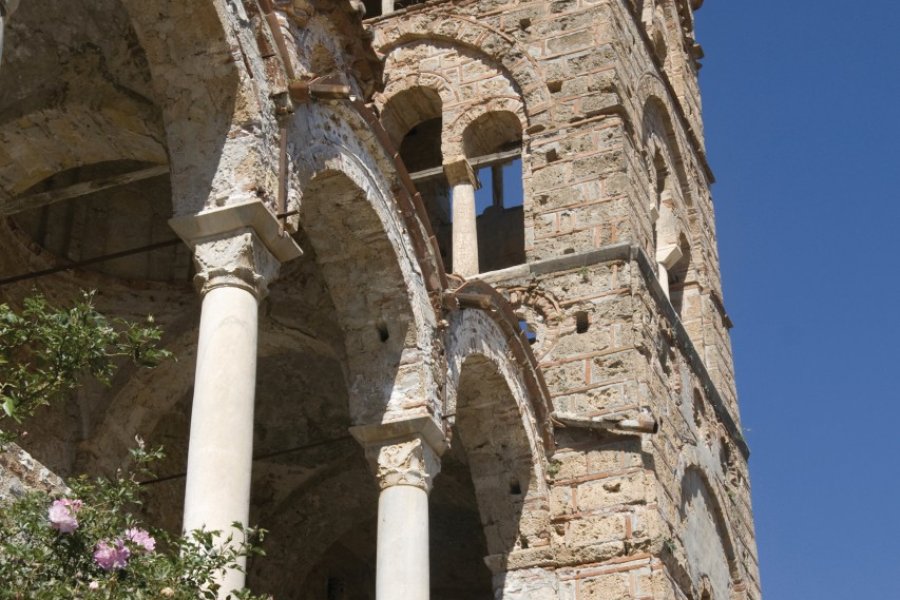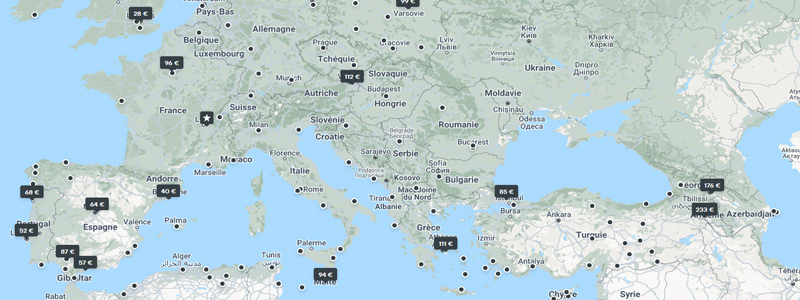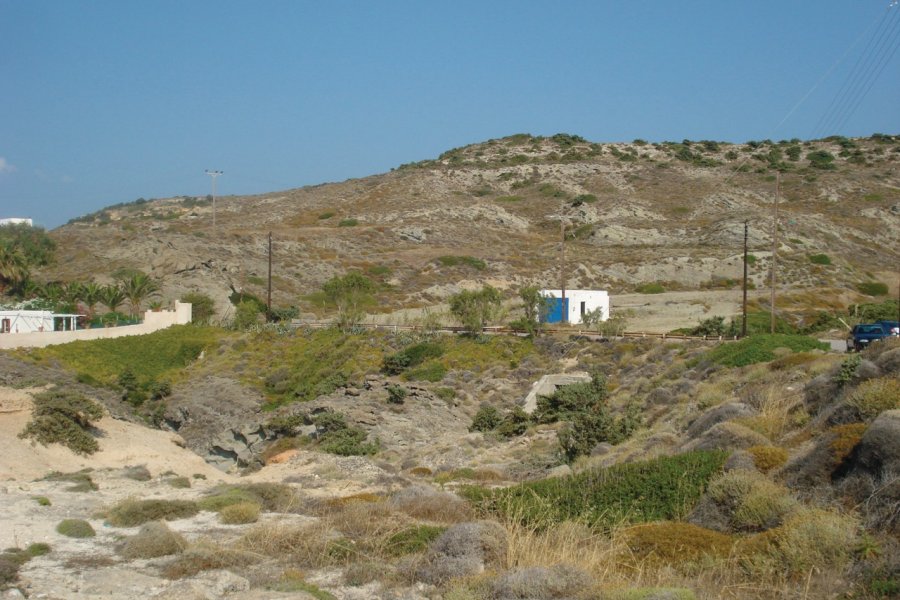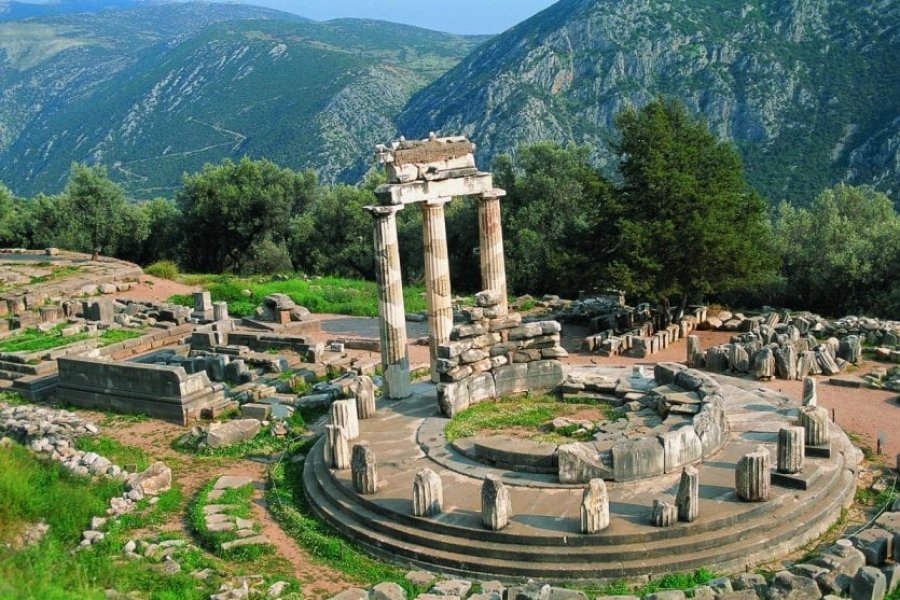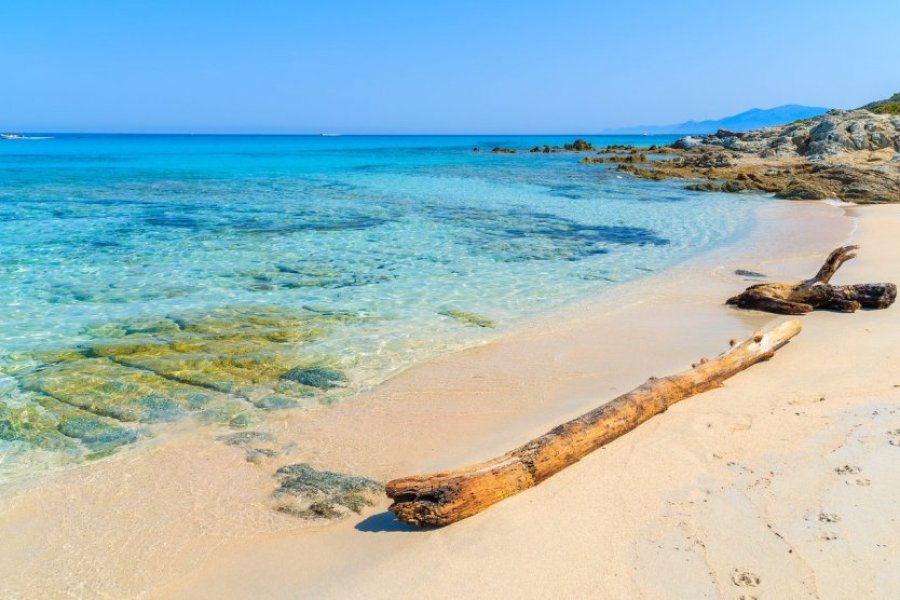Travel Guide Greece
It would be very simplistic to summarize Greece with its archaeological sites and its mild climate. If three quarters of its territory is mountainous, Greece is above all a beautiful story between men and the sea, on the coast of continental Greece as well as on the 6,000 islands that dot the Mediterranean basin, symbolized by Crete, Corfu and the Cyclades. There is so much to see while traveling the thousands of kilometers of these fragmented coasts with your Greece travel guide, from the beaches and resorts of the Apollo Coast south of Athens to the fortified village of Monemvassia in the Peloponnese, from the Corinth Canal to the perched monasteries of Greek Macedonia in the north. Lovers of ancient Greece will rush inland to visit the many archaeological wonders, often remarkably preserved, that line the territory and whose list is almost endless: the theater of Epidaurus, the fortress of Mycenae, the stadium of Olympia, the sanctuary of Delphi, the monuments of Athens... A trip with multiple perspectives whose pleasure will be magnified by the meeting with a population renowned for its hospitality, its wines and its cuisine!
What to visit Greece?
Suggested addresses Greece
When to go to Greece?
The best times to go to Greece are spring and fall. The ideal conditions are between Easter and the end of June. The weather is mild, the number of tourists is still low, and transportation is already organized for the summer season. Unfortunately, hotel prices in the city center are at their highest.
The same applies from the end of August to mid-October, when the heat dies down and the climate becomes mild again. In addition, the cultural season resumes and there are more activities.
Weather at the moment
As far as weather is concerned, Greece is the sunny destination par excellence. In July and August, the heat is torrid. It is milder from March to June, then from September to mid-November. There are a few winter months during which a light jacket is required or a ski suit in mountainous areas. Forget your umbrella in summer (rainfall is extremely rare), but in winter it can be useful!
Athènes
Thessalonique- Thessaloniki
Greece is part of the euro zone. In spite of untimely increases linked to the changeover to the euro, and then to the serious economic crisis that the country is going through, life is generally a little less expensive in Greece than in France. Generally speaking, restaurants, accommodation and fresh produce markets are significantly cheaper in Greece.
Theoretically, service is included in the bill. It is customary to leave 5 to 10%.
As a European resident, there is no need to apply for a visa and you only need a valid passport or identity card to enter the country. No visa is required for Canadian nationals if their stay is less than three months. For Swiss nationals, a valid identity card or passport is required.
There is no particular risk in Greece. No vaccinations are mandatory, just make sure that your vaccination booklet (DT Polio, etc.) is up to date. The health system has been affected by the crisis and it is recommended to seek medical treatment in Athens if possible. Tap water is declared drinkable everywhere, even on the islands.
Practical information
- When to travel?
- Weather forecast
- Budget
- Formalities
- Health
- How to travel by yourself?
- How to get organized?
- Getting around
Media
How to go to Greece? Our advice & tips
The agencies offer itinerant tours along the main ancient sites (Delphi, Olympia, Epidaurus, Mycenae, Athens, Cap Sounion) or more sedentary thematic tours: agrotourism, thalassotherapy, diving... A great classic of the organized trip is to discover the Peloponnesus peninsula, from the great ancient sites to the small ports of Magne.
Discover our selection of travel agencies for this destinationAthens is easily accessible by plane. Please note that the price variation depends on the airline you fly with and, above all, on the time of booking. In order to get the best rates, it is essential to book well in advance. Remember to buy your tickets six months before departure!
The bus is the most used means of public transport by the Greeks because the rail network does not serve the whole territory. The national bus company is called KTEL. Its network is quite extensive on Greek territory and its prices are rather reasonable. Be wary of the schedules and frequency of buses in some of Greece's small, remote villages. There are many ferry connections to the islands, although the most important ones have an airport.

